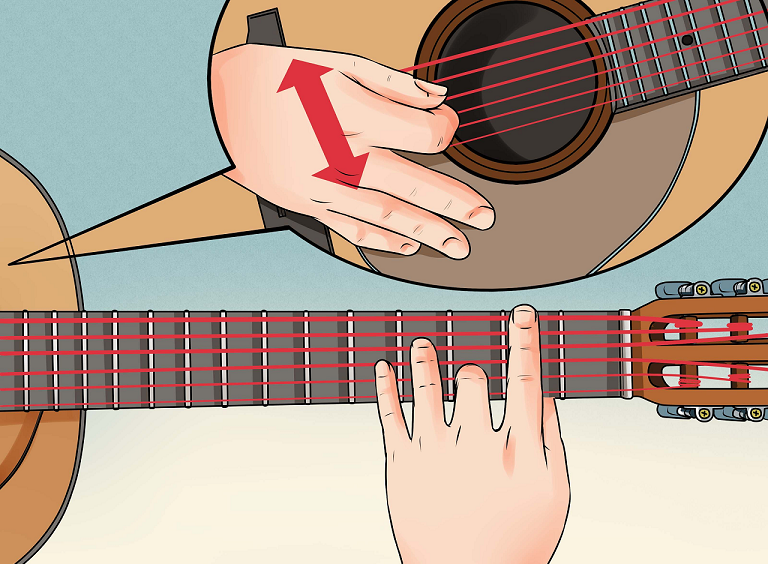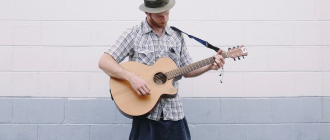Here are a few tips for the beginner starting to learn the guitar basics. Mindset is critical! These little bits of advice are more about your approach to learning than technique, and should apply whether you play electric or acoustic or want to learn rock, jazz, blues, whatever. These are things I wish I’d known when I was first starting out. –Dave

Get a good guitar teacher.
Beyond just the basic chords, scales, strumming patterns, etc., a good teacher can offer valuable feedback and help you avoid common mistakes that new players make. Learning guitar by yourself at home is fine, but if you want to learn fast and not develop bad habits, get a teacher. Check out our post on the benefits of finding a good guitar teacher.
It takes time.
Everyone wants to learn guitar quickly. It takes time and perseverance! I always wanted to learn solos and play by ear from the get go, I needed to relax. When I was in high school, I got frustrated and quit. Don’t be a dummy like I was. Start out learning chords and scales and go from there. You will get better.
Stop comparing yourself to others.
Right now. Compare yourself to yourself. Listen to recordings of your playing a month or so before. I remember when I first started learning guitar if I heard a good guitarist play I always enjoyed the music but there was a small tinge of jealousy and angst that came with it: I wasn’t as good. I had to run home and practice. Ego was getting in the way. Making recordings of yourself playing is a great way to track progress. There will always be better guitarists than you, even if you become the next Joe Bonamassa. Get over it.
The best person to compare yourself to is yourself: two months ago.
Learn the minor pentatonic scales first, especially if you are interested in rock.
A large chunk of the rock library is steeped in the minor pentatonic scale. If your goal is to learn some rock tunes, then practice the minor pentatonic scale. Later, when you learn classic rock solos you’ll know the shapes. It will be familiar territory, which is a great feeling for a beginner.
Learning scales is great, but you have to learn licks to learn lead.
Don’t quit.

If you aren’t where you want to be, look back and see how far you’ve come. See tip #3. Every guitar player will hit the wall at some point, those times when even after daily practice for months, you feel like you are not progressing. There are days you feel like EVH, and days you feel like that guy in the music store who keeps flubbing the same two power chords over and over. If you are in a rut, best thing to do is relax and play something fun you like. If you mainly play electric, pick up the acoustic and learn something new. If you are learning classical, grab the Strat and go to town. Play new things for a week, then come back to the place you were before and give it another try. These little “walls” that pop up during your ascent to guitar greatness usually happen just before you make a jump in your playing ability. Keep at it.
A Squier Strat ain’t gonna make no Back in Black sounds.
The sound coming out of your guitar is important. Find the sound you like. If you ain’t getting it, find a friend who knows more than you or head to the guitar store and talk to someone with a little tone experience. I remember sitting in my bedroom playing AC/DC on the bridge pup of a Squier strat and being thoroughly discouraged. It didn’t sound right! Well, of course not! I needed a Gibson style humbucker guitar with a bit of oomph. Don’t let chasing tone be your only mission, but do try to find something you like. You’ll probably play more.






